Munich
Dachau
When we got to the town of Fussen the bike place was closed. The owner happened to be dropping by so we asked him if we could rent. He was super nice and let us rent. We biked back to where we saw some camping. The weather was beautiful, almost perfect. We were in Bavaria, the Alps were next to our camp. The castles were lit up at dark. We set up camp, then went back out to look for food, finding a Spar (grocery store). Burger joint closed one minute before we arrived at 2200. Ate in tent. Nice night, but then....the rain came in during the night. It rained for hours. By the time we got up at 8:30, things were VERY wet. My money belt was soaking in a puddle. We packed up. The camp had warm showers and a Laundromat. We cleaned up and washed all of our clothes. Then we biked to Fussen in the rain. Caught train to Munich. We quickly found a hotel, the one in the book was full. Then we quickly worked our way to the S and found the train to Dachau. The concentration camp was worth a visit. We watched a video in a packed theater. It did not hold back. The pictures were shocking. Imagine several hundred people watching the film and you could hear a pin drop. This evening we walked around town then went to the hotel for a relaxing evening of watching German TV.
In the morning we took our packs to the train station. Now we were free to sightsee. We did Munich in a big circle. We bought a camping stove in a giant outdoor store. Rachelle bought and sent a Cuckoo clock to her grandpa.
Gate at Dachau
Biking around Fussen
Inside Dachau
The Munich Glockenspiel
Frauenkirche - Cathedral of Our Blessed Lady
The Hofbr�uhaus
Field Marshal�s Hall
Theatine Church
Looking at something inside the town square
Streets of Munich
Watermellon, mmm
Fussen is in Bavaria, Germany, only 3 miles from the Austrian border. Fussen is the highest town in Bavaria and the end of the Romantic Road. The famous castles of Neuschwanstein and Hohenschwangau are nearby. The High Castle is the former summer residence of the prince bishops of Augsburg and one of Bavaria's largest and best preserved late Gothic castle complexes. Below it is the Baroque complex of the former Benedictine monastery of St. Mang, whose history goes back to the 9th century.
The Dachau concentration camp was the first Nazi concentration camp opened in Germany, in 1933. It's named after the nearby town of Dachau in Bavaria. Heinrich Himmler, then Chief of Police of Munich, officially described the camp as "the first concentration camp for political prisoners." From 1933 to 1938 the prisoners were mainly German nationals detained for political reasons. Subsequently the camp was used for prisoners of all sorts from every nation occupied by the forces of the Third Reich. After the war, the camp was used as a prison for SS officers awaiting trail. Dachau was still being used for various purposes until 1960. Today it is a memorial to the estimated 200,000 people from more than 30 countries killed there, a third of whom were Jews.
Munich is the third largest city in Germany and the capital city of Bavaria. It is located on the River Isar north of the Bavarian Alps. Marienplatz is the central square in the heart of Munich. The tower of the New Town Hall houses the Glockenspiel, a beautiful carillon that is over 100 years old. At certain times you can see the Glockenspiel chime and watch the 32 life-sized figures reenact historical Bavarian events. Also visit the largest church in town, The Catholic Cathedral of Our Blessed Lady. Being such a large city, there are all kinds of things to see but exploring around the Old Town is the real attraction to Munich.
Munich & Fussen Germany
WillhiteWeb.com: Europe Travel
Fussen
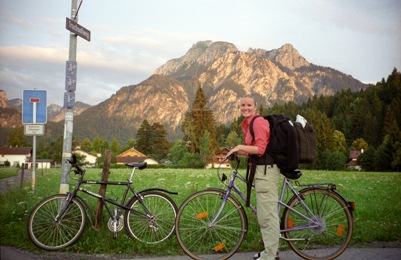
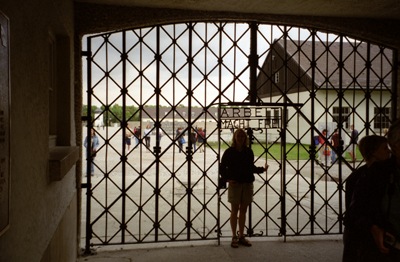
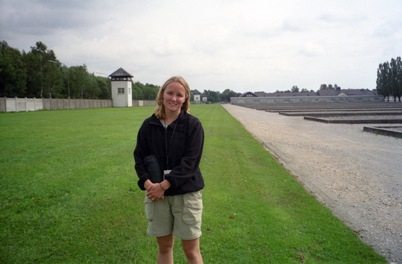
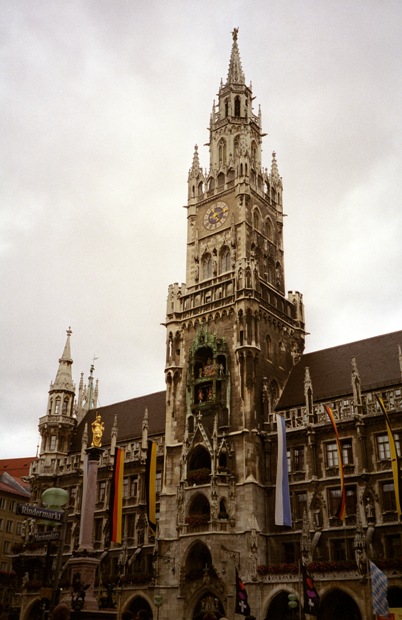
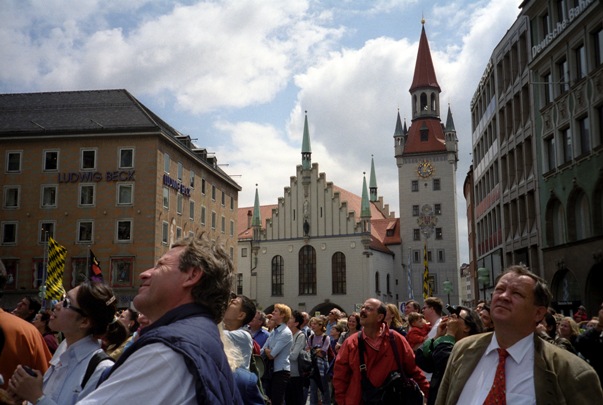
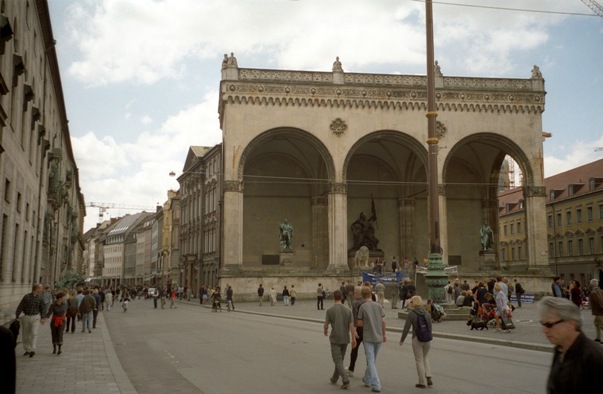
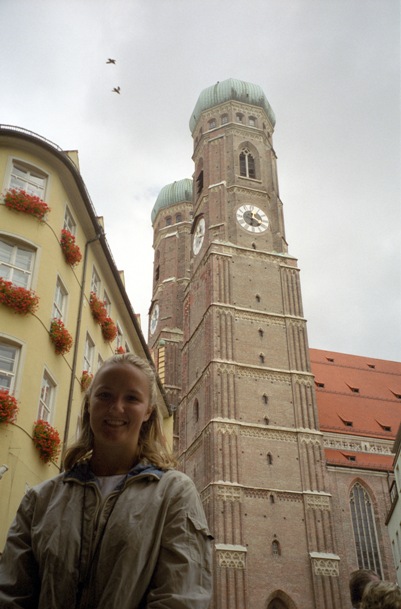
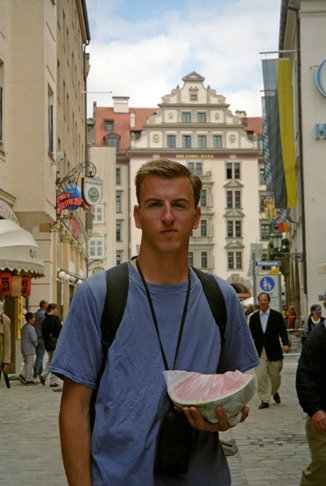
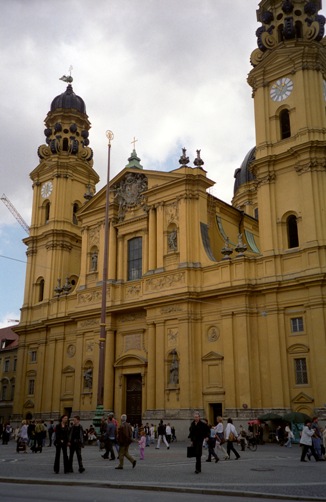
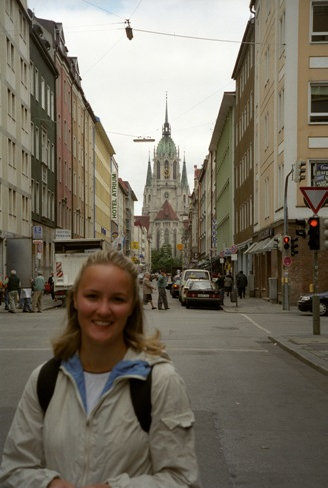
Munich & Fussen Germany
Fussen
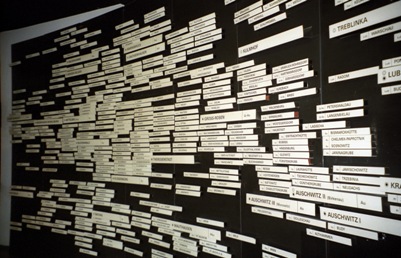
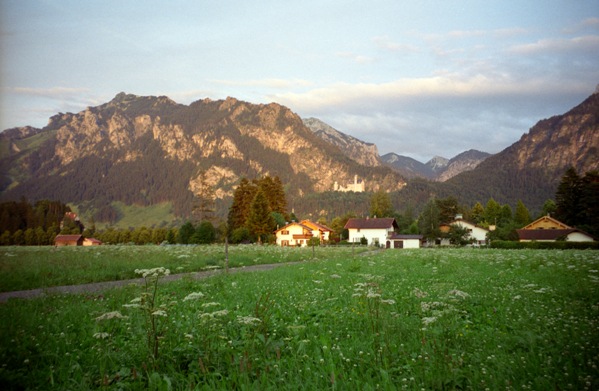
Fussen with Neuschwanstein or Hohenschwangau on the mountainside
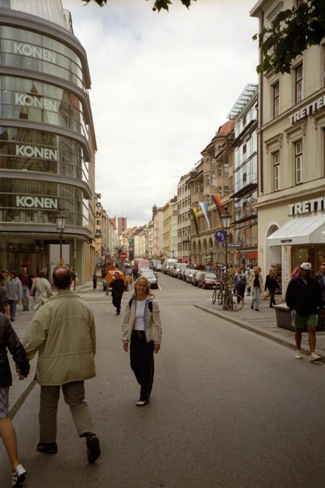
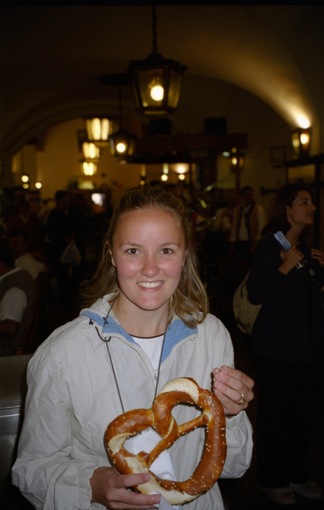
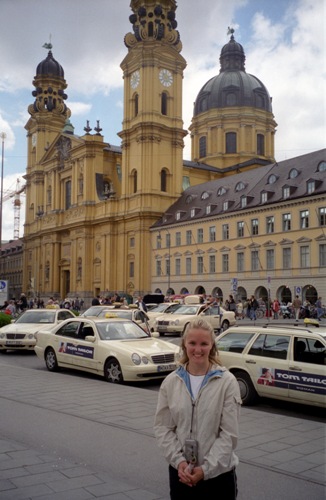
Theatine Church

Display at Dachau showing all the different concentration camps during the war. The number of camps between 1939 to 1942 were 300+, as slave-laborers from across Europe, Jews, political prisoners, criminals, homosexuals, gypsies, the mentally ill and others were incarcerated, generally without judicial process. Holocaust scholars draw a distinction between concentration camps and extermination camps, which were established by the Nazis for the industrial-scale mass murder of the predominantly Jewish ghetto and concentration camp populations.
Streets of Munich
Munich & Fussen Germany















